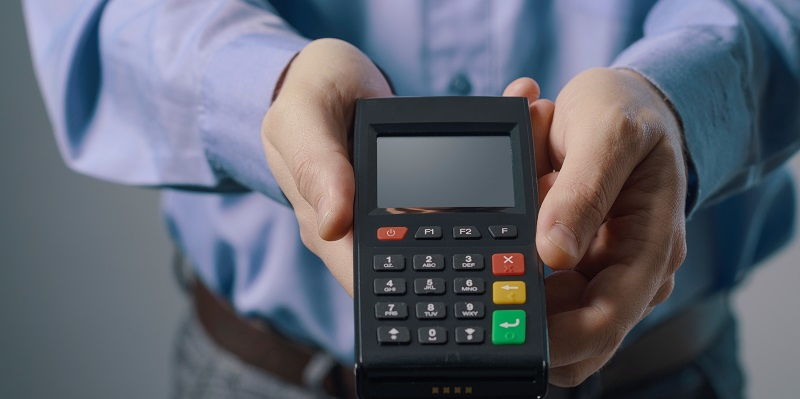The growth of payment methods is one of the most significant shifts in recent times, raising the intriguing question: Are we progressively moving towards a cashless society? This article aims to explore the expanding consumer alternatives, such as credit and debit cards, digital wallets, and contactless payments. In particular, we will delve into the role of digital wallets and the contribution of contactless payments in the transition. Additionally, we will examine how electronic payments simplify transactions and enhance security features. Lastly, we will discuss the challenges associated with a cashless society and the importance of striking a balance between technological advancement and financial inclusivity.
Expanding Consumer Alternatives
The landscape of payment options for consumers is expanding at an unprecedented rate. Traditional cash payments are now being supplemented by various alternatives, including credit and debit cards, digital wallets, and contactless payments. These alternatives provide users with convenience and flexibility, allowing them to complete transactions quickly and securely.
The Role of Digital Wallets
Digital wallets have emerged as one of the most visible players in the transition to a cashless society. These virtual wallets allow users to store their payment information securely and access it conveniently. With digital wallets, individuals can make purchases online or in physical stores without the need to carry physical cash or cards. This form of payment also offers additional features, such as integrated loyalty points and transaction history tracking.
Contribution of Contactless Payments
Contactless payments have significantly contributed to the decline of cash’s dominance in recent years. With their quick processing times and enhanced security features, contactless payments have become increasingly popular. Tap-and-go payments using Near Field Communication (NFC) technology have made transactions faster and more convenient than ever before. As a result, more consumers are opting to make payments without physical contact, thereby reducing reliance on cash.
Simplification of Transactions
Electronic payments have revolutionized how we conduct transactions in our fast-paced society. With digital payment methods, individuals no longer need to carry physical cash, resulting in streamlined and efficient transactions. Whether it’s paying for groceries, dining out, or shopping online, electronic payments offer a seamless and hassle-free experience.
Enhanced Security Features
Alongside the convenience they offer, digital payment methods also come with greater security features. Encryption technology ensures that sensitive payment information remains secure and protected from unauthorized access. Additionally, many digital payment platforms incorporate biometric authentication, such as fingerprint or facial recognition, providing an extra layer of security. These measures work together to reduce the risk of theft and fraud, instilling confidence in consumers to embrace cashless transactions.
Efficiency of Cashless Transactions
Cashless transactions offer numerous advantages in terms of efficiency. The processing times for electronic payments are typically faster than those for cash transactions. For merchants, this means reduced wait times for customers, ultimately leading to improved customer satisfaction and increased sales. Furthermore, the shift towards cashless payments has prompted businesses to invest in better payment infrastructure, including POS terminals and digital payment acceptance, further enhancing the efficiency of transactions.
Discussing the Importance of Physical Money
While the advantages of a cashless society are evident, recent events have highlighted the dangers of completely eliminating physical money. The devastation caused by the cyclone in New Zealand serves as a poignant reminder of the importance of maintaining access to physical currency during times of crisis. In emergency situations where power outages and network failures occur, physical cash can become the only viable means of exchange. This raises questions about the potential risks and vulnerabilities associated with relying solely on digital payments.
Challenges of a Cashless Society
The shift to a cashless society is not without its challenges. One major concern is digital exclusion, which refers to the exclusion of individuals who do not have access to or are hesitant to use digital payment methods. It’s essential to ensure that everyone, including the elderly, lower-income individuals, and those in rural areas, has access to alternative payment options. Additionally, concerns regarding security and technology failures must be addressed to build trust and confidence in the cashless system.
Striking a Balance
As we navigate the journey towards a cashless world, it is crucial to strike a balance between supporting technological advancement and guaranteeing financial inclusivity. While digital payments offer numerous benefits, including convenience, security, and efficiency, it is important to ensure that no one is left behind in the transition. Efforts should be made to bridge the digital divide and address any disparities that may arise due to the adoption of cashless payment methods.
The transition towards a cashless society holds both excitement and complexity. The expansion of payment options, particularly digital wallets and contactless payments, has significantly contributed to the declining popularity of cash. Electronic payment methods simplify transactions, enhance security, and offer greater efficiency. However, challenges such as digital exclusion, security concerns, and the need for access to physical money during crises must be considered. Striking a balance between technological advancement and financial inclusivity is crucial to creating a future where digital payments are accessible to all while ensuring the necessary safeguards and options for those who rely on physical currency.

